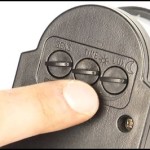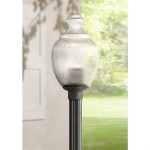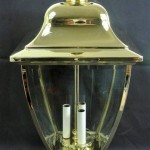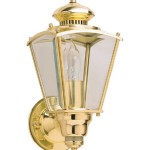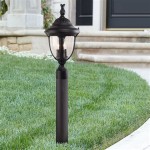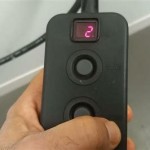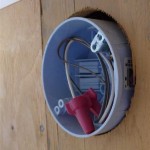Motion Sensor Light Socket Outdoor: A Guide to Essential Features
Motion sensor light sockets are a convenient and energy-efficient way to illuminate outdoor areas. They automatically turn on when motion is detected, providing light where you need it most, only when you need it. Choosing the right motion sensor light socket for your application requires considering several key factors. Here's a guide to help you make an informed decision.
1. Motion Detection Technology
Motion sensor light sockets utilize different technologies to detect movement. The primary types include:
- Passive Infrared (PIR): Senses heat emitted by moving objects. Effective for detecting people and animals.
- Microwave: Emits microwave pulses and detects changes in the reflected signal caused by moving objects. Can penetrate non-metallic materials, making it suitable for indoor and outdoor use.
- Ultrasonic: Emits ultrasonic sound waves and detects changes in the echo caused by moving objects. Not as commonly used in light sockets but can be effective in specific applications.
2. Detection Range and Sensitivity
The detection range determines how far away the sensor can detect motion. The sensitivity refers to the level of movement required to trigger the light. Consider the coverage area you need and the desired level of sensitivity based on your application. Some light sockets offer adjustable detection range and sensitivity, providing flexibility in customization.
3. Time Delay
The time delay specifies how long the light remains on after motion is no longer detected. This feature helps conserve energy by automatically turning off the light when no movement is present. Choose a suitable time delay based on your needs, such as 1 minute, 5 minutes, or 10 minutes.
4. Light Output
The light output determines the brightness of the light emitted by the socket. Measure in lumens or watts, higher values indicate brighter light. Consider the intended purpose and the level of illumination required for your outdoor space.
5. Bulb Compatibility
Motion sensor light sockets support various bulb types, including LED, incandescent, and CFL. Ensure that the socket you choose is compatible with the bulbs you intend to use. LED bulbs are energy-efficient and long-lasting, making them a popular choice for motion sensor light sockets.
6. Weather Resistance
For outdoor use, weather resistance is crucial. Look for light sockets with a weatherproof rating, such as IP65 or higher. This indicates the socket's ability to withstand rain, dust, and other outdoor elements.
7. Installation Ease
The installation process should be straightforward and user-friendly. Choose light sockets with clear instructions and all necessary mounting hardware. Some light sockets may require additional wiring or tools, so consider your technical abilities before selecting one.
By considering these essential aspects, you can select a motion sensor light socket that meets your specific outdoor lighting needs. These devices provide convenience, energy savings, and enhanced security for your outdoor spaces.

Security Flood Light Motion Sensor Adapter Kit

Ee101wls Invisible Motion Activated Retrofit Smart Bulb Sockets Series

American Tack Omlc3bc Outdoor Motion Activated Light Control Com

Woods 180 Degree White In Motion Sensor The Light Adapters Department At Com

Security Flood Light Motion Sensor Adapter Kit

American Tack Omlc3bc Outdoor Motion Activated Light Control Com

360 Motion Pir Sensor Socket Ez 9313a

Westek Indoor Motion Sensing Light Control White Mlc166bc The Home Depot

Motion Sensing Light Socket Maple Electric Supply

Motion Sensing Light Socket
Related Posts
